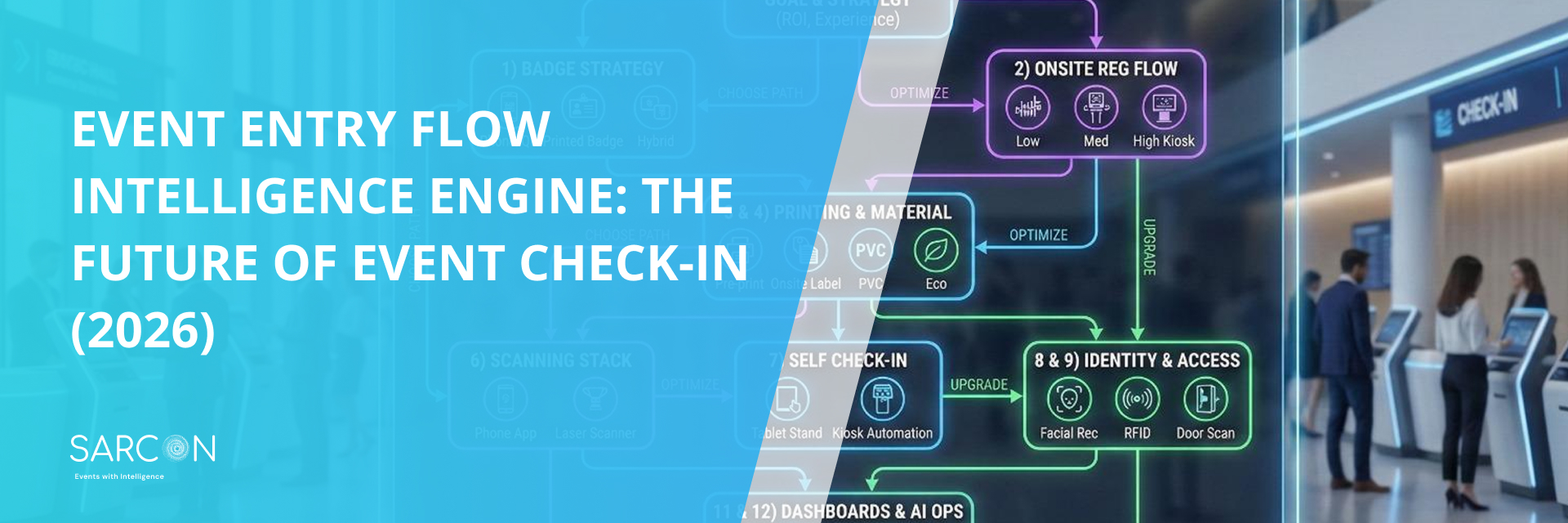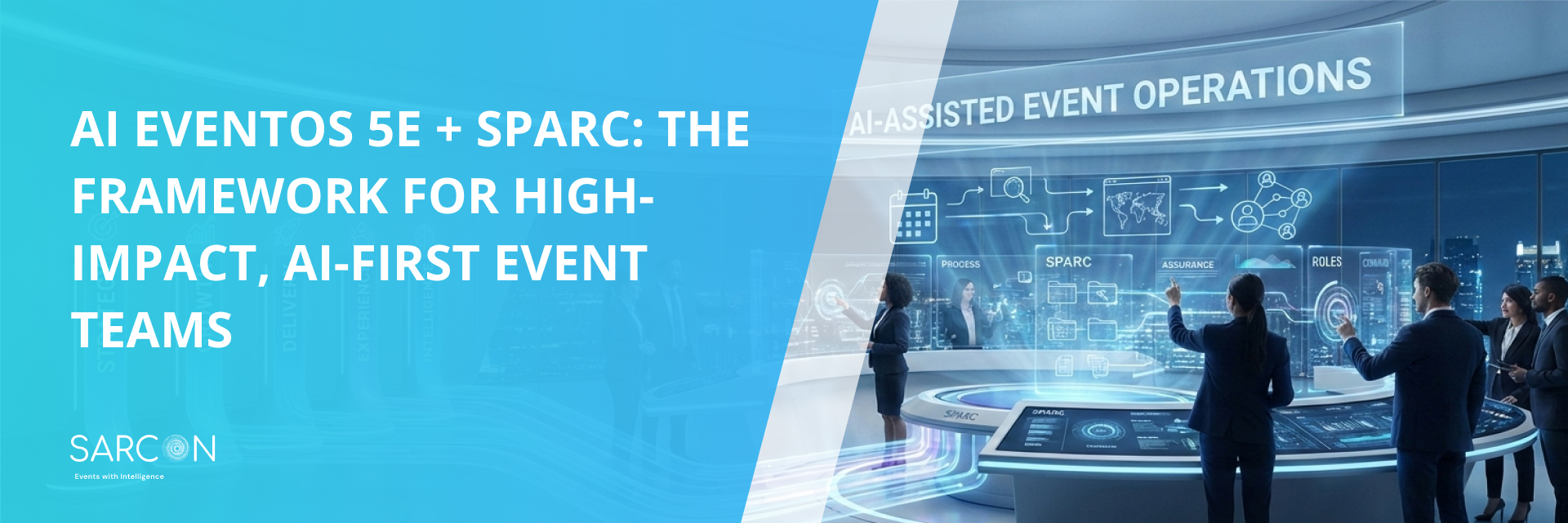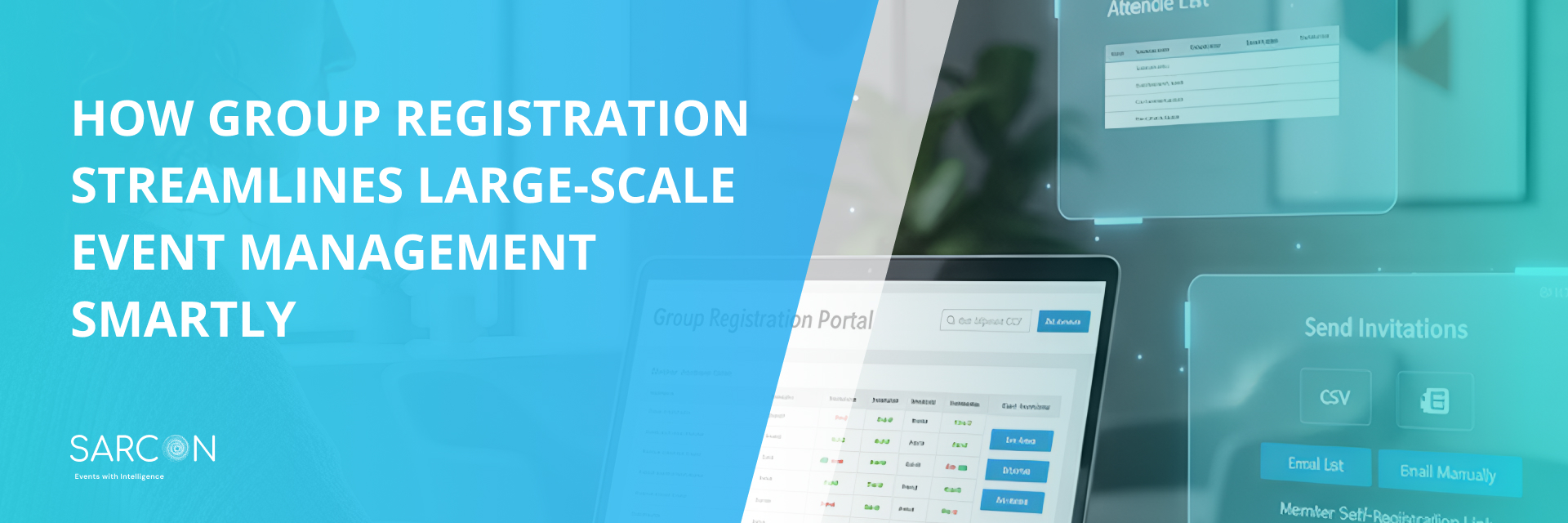The impact of artificial intelligence (AI) on various industries is a topic of great interest and debate among experts and enthusiasts alike. One industry that is expected to experience significant changes due to AI advancements is event planning and management. The integration of AI in this field is poised to revolutionize the way events are planned, organized, and executed, leading to more efficient processes, personalized experiences, and improved outcomes for all stakeholders involved.
In this article, we will delve into the transformative power of these technologies, exploring their potential impact on event management processes, attendee experiences, and overall efficiency.
Embracing AI in Event Management
As event organizers strive to create memorable and seamless experiences, the integration of AI and automation offers a promising horizon. From streamlining administrative tasks to enhancing attendee engagement, the future of event management software holds immense potential. So, let’s embark on this exciting exploration of how AI and automation are reshaping the world of events
-
Personalized Attendee Experiences
AI-powered event management software can analyze vast amounts of data to understand attendees’ preferences and interests. This enables event organizers to offer personalized experiences, from tailored agendas and session recommendations to matchmaking opportunities, resulting in higher satisfaction rates and increased engagement.
-
Intelligent Event Scheduling
Efficient scheduling is critical to the success of any event. AI algorithms can consider various factors like travel times, attendee preferences, and resource availability to create optimized event schedules that minimize conflicts and maximize attendance.
-
Real-time Analytics and Insights
Gone are the days of post-event analysis. AI-driven event management platforms provide real-time analytics, allowing organizers to monitor key performance indicators and make data-driven decisions during the event itself, ensuring smooth execution and immediate adjustments.
-
Chatbots for Seamless Communication
Chatbots equipped with natural language processing capabilities are revolutionizing attendee communication. They can address frequently asked questions, provide event information, and offer real-time assistance, enhancing the overall attendee experience and reducing the burden on event staff.
-
Predictive Event Marketing
AI enables event organizers to predict potential attendees’ behavior, improving marketing strategies and maximizing event reach. By understanding what drives engagement, organizers can create targeted campaigns and optimize their marketing budgets effectively.
Automating Event Management Processes
Automation is another cornerstone of the future of event management software. By automating repetitive and time-consuming tasks, event planners can focus on more strategic aspects, making events more efficient and impactful. Let’s explore some key areas where automation is making a significant difference:
-
Registration and Ticketing
Automated registration and ticketing systems streamline the attendee onboarding process, eliminating manual data entry and reducing the chances of errors. This leads to a smoother check-in experience and higher attendee satisfaction from the outset.
-
Email Marketing Automation
Crafting personalized and timely email campaigns is essential for event success. Automation tools can segment audiences, send targeted emails, and track responses, resulting in improved engagement and higher conversion rates.
-
Venue and Resource Management
AI-powered event management software can assist in identifying the ideal event venue based on attendee locations, preferences, and other factors. Additionally, it can manage resources like AV equipment, catering, and seating arrangements, optimizing resource allocation.
-
Virtual Event Management
With the rise of virtual events, automation plays a crucial role in managing the intricacies of virtual platforms. Automated event platforms can handle virtual registrations, attendee data, and session management, ensuring a seamless virtual experience.
-
Post-Event Follow-up
Automated post-event follow-up processes, such as sending surveys and thank-you emails, help gather feedback and insights for future event improvements. This streamlines the feedback loop and strengthens relationships with attendees.
The Intersection of AI and Automation: A Powerful Duo
As AI and automation technologies continue to evolve, their synergy becomes increasingly apparent. When integrated intelligently, these technologies form a powerful duo that can revolutionize the event management landscape in ways we could only imagine before.
-
Smart Resource Allocation
By combining AI’s data analysis capabilities with automation’s execution efficiency, event organizers can optimize resource allocation during an event. Whether it’s adjusting seating layouts in real-time or managing catering requirements, the duo ensures that resources are utilized optimally.
-
Enhanced Risk Management
AI-powered risk prediction models combined with automated contingency plans can mitigate potential disruptions during events. From weather forecasts to traffic updates, the duo can help organizers proactively address challenges.
-
Seamless Networking Opportunities
AI-driven matchmaking algorithms can identify potential connections among attendees, and automation can facilitate the scheduling of meetings, making networking more productive and impactful.
-
Streamlined Post-Event Reporting
The integration of AI and automation streamlines post-event reporting processes. Data analysis is automated, and comprehensive reports are generated promptly, providing event organizers with actionable insights for future improvements.
Challenges and Considerations for the Future of Event Management Software
While the future of event management software holds immense promise, it also comes with its fair share of challenges and considerations that must be addressed to ensure a successful transition.
-
Data Privacy and Security
With increased reliance on AI and automation, safeguarding attendee data and maintaining data privacy become paramount. Event organizers must invest in robust security measures to protect sensitive information.
-
Human Touch and Personalization
As technology takes center stage, striking the right balance between automation and the human touch becomes crucial. Attendees still crave authentic interactions and personalized experiences, which must not be overshadowed by automation.
-
Integrating Legacy Systems
Many event management companies already have existing systems in place. Integrating AI and automation seamlessly with these legacy systems can pose challenges but is essential for a smooth transition.
-
Skill Enhancement and Training
The successful adoption of AI and automation requires event management teams to develop new skills and adapt to technological advancements continually. Proper training and upskilling initiatives are necessary to empower teams for the future.
Conclusion
The future of event management software is a realm of endless possibilities, driven by the ever-evolving technologies of AI and automation. As event organizers embrace these transformative tools, they unlock new avenues to deliver exceptional experiences for attendees.
The integration of AI revolutionizes event registration and marketing, creating personalized interactions with attendees. Automation simplifies event planning, enhances security, and streamlines reporting processes, making event management more efficient than ever before.
Looking ahead, the fusion of virtual and physical experiences through hybrid events promises to redefine the landscape of event management. With AI-driven content personalization and adaptive experiences, events will leave a lasting impression on attendees, fostering long-term engagement.
As we navigate this technological wave, it is essential to remember that while AI and automation offer remarkable advantages, human expertise and creativity remain indispensable in curating unforgettable events. By harnessing the power of AI, automation, and human ingenuity, the future of event management is set to be an exciting and enriching journey.
FAQs:
How will AI impact event attendee engagement?
AI enhances event attendee engagement by offering personalized recommendations, real-time assistance through virtual assistants, and interactive experiences through chatbots.
Can automation streamline event planning for large-scale events?
Yes, automation streamlines event planning for large-scale events by efficiently managing
scheduling, task allocation, and resource utilization.
What challenges should event organizers consider when adopting AI and automation?
Event organizers should consider challenges related to data privacy and security, maintaining human touch and personalization, integrating legacy systems, and providing skill enhancement and training for their teams.
Will AI replace human event organizers?
AI is designed to augment human capabilities, not replace them. While AI can handle repetitive tasks, human organizers provide creativity, emotional intelligence, and personalized touches that are irreplaceable.
Can AI-driven event marketing improve ROI?
Yes, AI-driven event marketing can significantly improve ROI by targeting the right audience, optimizing campaigns, and enhancing promotional strategies.
How does automation improve event security?
Automation improves event security by enabling real-time surveillance, rapid emergency response, and risk assessment to prevent potential threats.
What are the advantages of hosting hybrid events with AI integration?
Hosting hybrid events with AI integration allows for remote participation, increased attendee reach, and a seamless integration of virtual and physical experiences.



